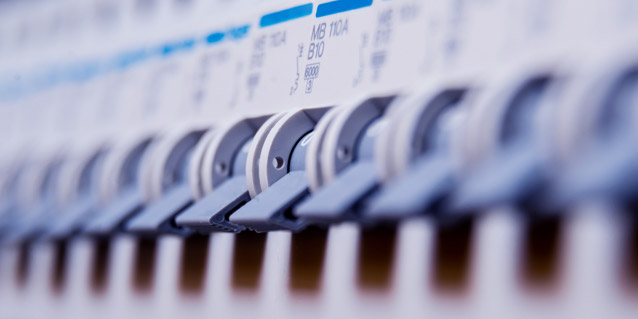EMA License: 9/21140 | Open 9am - 6pm | Monday to Saturday | Call 84193988

Here's Exactly Why Your Circuit Breakers Keep Tripping
Do you have one or more circuit breakers that keep tripping? It can get annoying to go outside over and over just to switch it back to the right side. When your circuit breaker trips often, and in a consistent manner, it could be a sign that something is wrong.
Circuit breakers are put in place to prevent electrical outages, electrical fires, and deadly electrocutions. They are a method of safety that are attached as a standard requirement for any electrical unit, and they need to be well maintained so that they can do their job properly.
But, what are circuit breakers? How do they keep homeowners safe from electrocution? And, what does it mean when they keep tripping? The answers below may help you understand what you can do when your circuit breakers are on the fritz.
What Exactly Are Circuit Breakers?
Circuit breakers are vital safety mechanisms for controlling the electrical components of your home in a safe way. They are protective measures that monitor whether or not a certain area of your home has too much electrical current flowing through it. If the circuit breakers read a high amount of current, they will automatically switch off as part of a crucial safety function to prevent an electrical overload.
Circuit breakers typically use semiconductors in order to read the electrical currents in your home. They can monitor all electrical levels in your home, from simple devices to more complex energy-consuming machines.
How do Circuit Breakers Prevent Electrocutions and Fires?
Circuit breakers are able to prevent electrocutions and fires because they are built to respond to immediate threats. They typically monitor electric currents through the wires. If one wire is not at the same level of electricity as the other wires, it will trigger the circuit breaker to immediately shut off electricity to that line.
Circuit breakers are built to sense surges and electrical overloads which can cause electrocution and dangerous fires. Since the entire electricity in your home is all connected through a central circuit breaker panel, you can see all of the circuit breakers in one location, typically on one panel in the closet or backyard. These failsafe devices are built to provide instant surge protection to your body and your home, which is why they must be maintained in order to prevent fires and electrocutions. If one or more of your circuit breakers keep tripping, you need to seek the attention of an electrician right away.
Why You Need an Electrician to Check Out Your Circuit Breakers
There are a few reasons why your circuit breakers may be tripping. Three of the most common causes include:
- Short circuiting
- Ground faults
- Overloaded circuits
A short circuit happens when two hot wires touch, or when a hot wire touches a neutral wire. Typically, hot wires are black, and neutral wires are white. This creates a hot current, overloading the system and creating more energy than the electricity circuit can handle.
You must hire an electrician for a power trip service to fix this problem as soon as possible. Do not attempt to fix a short circuit yourself. Touching hot wires is very dangerous and can cause potential electrocution.
A ground fault occurs when a hot wire touches the ground wire. The ground wire is typically outside of the electrical panel box, which keeps the wires grounded to prevent static electricity. If two wires seem out of place, you should call a professional right away. Again, do not attempt to touch the wires on your own.
Much like a short circuit and a ground fault, an overloaded circuit can happen when you use too many electrical appliances at once. This is a less dangerous reason for tripping circuit breakers than the other two options, but it still should be treated with caution and care.
Have you ever had a power surge in your home because you are using the hair dryer while the TV is on? This is one of the many ways that a circuit can become overloaded. In this case, the circuit breaker for that unit will trip, turning off access to electricity. When the circuit breakers trip repeatedly, it’s time to call in the electrician. It’s best to let the professionals handle any situation when it comes to faulty wires or problems with circuiting.